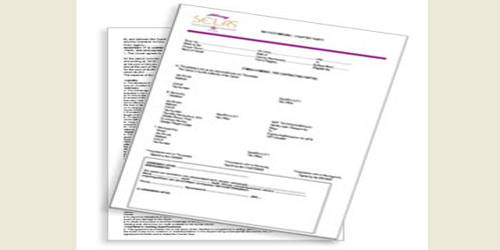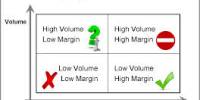A mortgage bond is backed by a mortgage that is often backed by real estate property as security. The assets are sometimes referred to as the bond’s collateral. Mortgage bondholders could sell the underlying property backing a bond to compensate for a default in the event of a default. Holders of mortgage bonds can make claims on the insurance. On the off chance that borrowers can’t reimburse their obligations, bondholders can offer the fundamental resources for cover the installments that they ought to get as per the agreement terms.
Mortgage bonds are generally safer than corporate bonds and, as a result, offer a lower rate of return. Monthly interest payments, which include the principal amount, are made to the investors. Mortgage bonds are essentially a collection of mortgages backed by real estate and real property. When a home is sold, the mortgage is usually sold to an investment bank or a government-sponsored business by the mortgagor or mortgage originator.
The securities can be securitized into a home loan-sponsored security and offered to financial backers in the optional market, which permits the bondholders to move hazards. In case of default, contract bondholders could auction the basic property to make up for the default and secure installment of profits. Mortgage bonds, unlike debentures, do not require repayment of the principal at maturity. Investors are drawn to these bonds because of their security features. The average mortgage bond tends to produce a lower rate of return than standard corporate bonds, which are backed exclusively by the corporation’s promise and ability to pay, due to its inherent safety.

Traditional bonds, such as those sold by the government, are not the same as mortgage bonds. The interest rate on a mortgage bond may vary depending on the types of mortgages involved, although classic bonds have a fixed-interest coupon that never changes. At the point when an individual purchases a home and funds the buy with a home loan, the bank seldom holds responsibility for the contract. On the off chance that the borrower defaults, the home loan bondholders are qualified for offer the security resources for get the chief paid.
Instead, it sells the mortgage to a third party, such as an investment bank or a government-sponsored enterprise (GSE), on the secondary market. This company bundles the mortgage with a group of other loans and sells bonds backed by the mortgages. An average life estimate is also included in mortgage bonds. The investor does not get a principal payment when they mature because it was included in the monthly interest coupon. After that, an investment bank transfers the bundle to an SPV (special purpose vehicle) and creates bonds backed by the mortgage on the loans.
The income from these credits is as interest in addition to head installment is spent each month to contract bondholders. When and how the bondholders can sell the resources, just as how the cash from the deal is circulated, are controlled by the agreement terms. Mortgage bonds often have lower interest rates than standard corporate bonds that are not secured by real assets due to a lower level of risk. A mortgage bond is a safe and reliable income-producing asset as long as the majority of the homeowners in the mortgage pool keep up with their payments. Mortgage bonds are generally considered a safe investment because they’re secured by real property.
To put it another way, if a homeowner fails on a loan or is unable to make payments, the property can be sold to repay the debt. Mortgage bonds are a low-risk investment since they allow you to sell your home for cash. A venture bank keeps its offer in the premium part of an advance and passes on the remainder of the premium in addition to head segment to bondholders. On account of default by the borrowers, the bondholders hold the rights to the capture of security. The risk of default is thereby transferred from banks to bondholders. These mortgage bonds have lower yields than traditional debentures because the mortgages are secured.
Some of the common types of mortgage bonds include the Mortgage Passthrough Securities and Collateralized Mortgage-Backed Securities.
- Mortgage Pass-through Securities: In a mortgage bond, each investor receives payback based on their proportional contribution. Default risk is also a concern for investors up to the extent of their investment. As a result, the benefits and risks of mortgage pass-through securities are balanced.
- Collateralized Mortgage-Backed Securities: Investors are classified in this arrangement. They are paid and exposed to risk based on their prioritization and classification. The investor with the highest priority is at a lesser risk of default, while the investor with the lowest priority is at the largest risk of default.
Advantages and Disadvantages of Mortgage Bonds:
Mortgage bonds offer borrowers and lenders a number of benefits. Because these bonds are secured by real assets, their lenders are exposed to fewer potential losses in the event of default. Mortgage bonds can enable less creditworthy customers to borrow larger sums of money at reduced interest rates. Mortgage bonds can be securitized into financial derivatives and sold to investors, increasing capital market liquidity and allowing risk transfer.
The danger of losing the collateral if the borrower’s defaults on their payments is one of the disadvantages of mortgage bonds. Although the lender gains ownership of the underlying collateral, the lender is not always able to sell the collateral for a sufficient sum to cover the loss. Collateral is typically sold at a discount to comparable assets’ fair market value.
Mortgage bonds are often thought to be safe debts since they are secured by real estate, which may be taken in foreclosure and sold to repay the amount. These bonds, as an asset class, provide diversity and a greater yield than Treasury bonds while posing a smaller risk than debenture bonds. Collateral is used to back these bonds. Investors are paid on a regular basis, including the principle, and have the right to seize pledged assets in the event of default.
Information Sources:
















